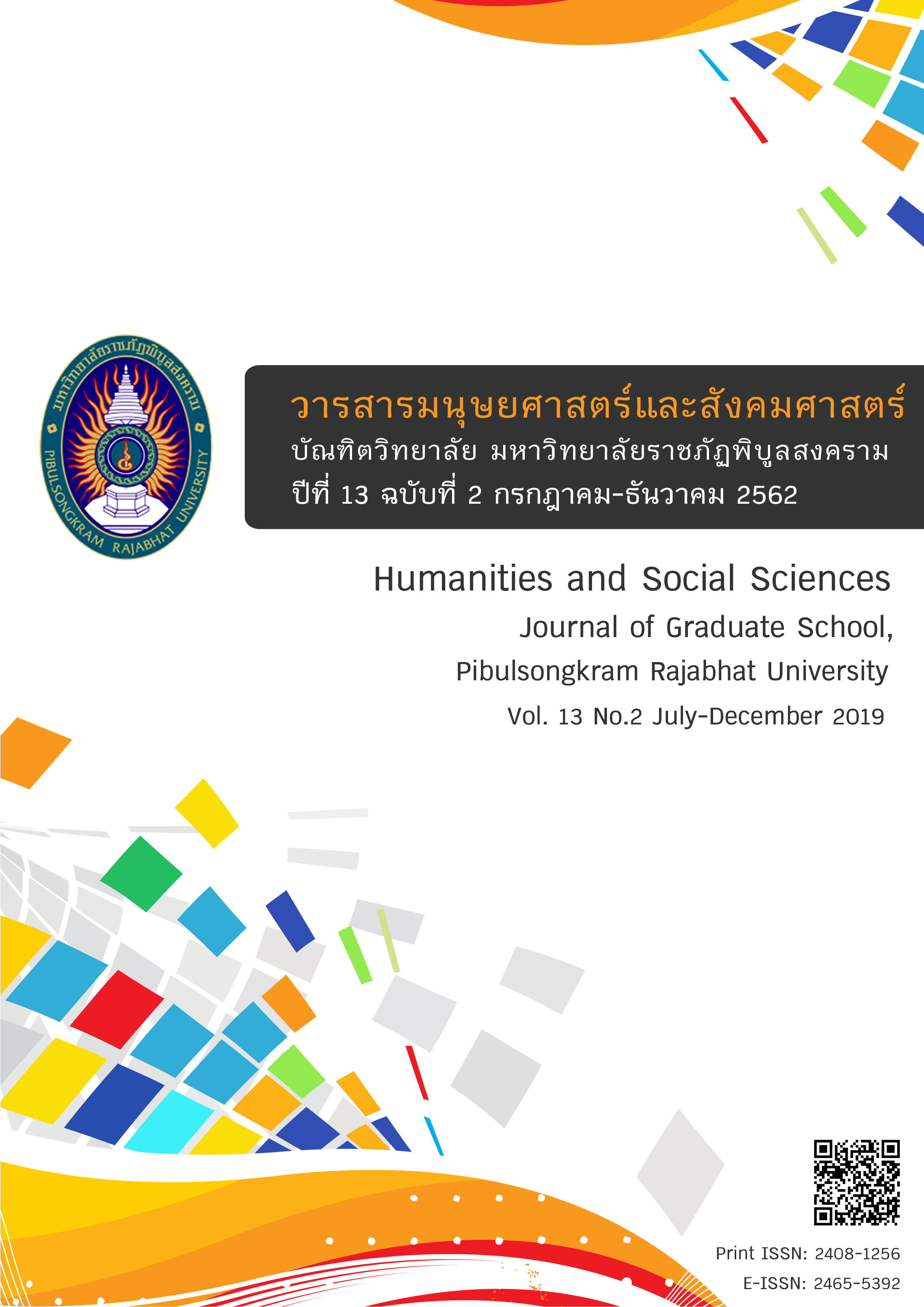A Exploratory Factor Analysis of Information Technological Knowledge for Grade 12 student
Keywords:
Information Technological Knowledge, Exploratory factors analysisAbstract
The objective of this study was to explore the factor structure of the Information Technological Knowledge Test for Grade 12 student.The participant was 600 Prathomsuksa 6 students in Phetchabun Province. 30 test items with 4 multiple choices of Information Technological Knowledge were used to collect the data. Exploratory factor analysis with Principal Axis Factoring extraction and Promax rotation was employed to analyze the
data. The results of the study revealed that the Information Technological Knowledge Test consist of 5 factors; 1) Basic operating system and applications. 2) Function of technological devices. 3) Principles of computer function. 4) Maintaining computer devices 5) Information presentation and computer usage.
References
ทิวาพร ชาญธัญกรรม. (2550). ปัจจัยบางประการที่ส่งผลต่อความรู้ด้านเทคโนโลยีสารสนเทศของนักเรียนระดับชั้นประถมศึกษาปีที่ 6 โรงเรียนสังกัดกรุงเทพมหานครกลุ่มกรุงธนบุรี (วิทยานิพนธ์การศึกษามหาบัณฑิต). มหาวิทยาลัยศรีนครินทรวิโรฒ, กรุงเทพฯ.
ปิยมนัส วรวิทย์รัตนกุล. (2560). การใช้กระดาน IWB ในชั้นเรียนคณิตศาสตร์ด้วยวิธีการแบบเปิดตามแนวคิด Bansho. วารสารครุพิบูล, 4(2), 59-74.
อนุ เจริญวงศ์ระยับ. (2560). อิทธิพลของผู้ตอบต่อโครงสร้างองค์ประกอบของพฤติกรรมการเป็นสมาชิกที่ดีขององค์กร. วารสารวิจัยเพื่อพัฒนาชุมชน (มนุษยศาสตร์และสังคมศาสตร์), 10(3), 53-60.
สำนักงานคณะกรรมการการศึกษาแห่งชาติ. (2555). พระราชบัญญัติการศึกษาแห่งชาติ พ.ศ. 2542 แก้ไขเพิ่มเติม (ฉบับที่ 2) พ.ศ. 2545 และ (ฉบับที่ 3) พ.ศ. 2553. กรุงเทพฯ: พริกหวานกราฟฟิค.
Kenny, D. A. (1998). Multiple factor models. Retrieved from www.davidkenny.net/cm/mfactor.htm.
Tabachnick, B. G., & Fidell, L. S. (2007). Using multivariate statistics. Boston: Pearson.
Downloads
Published
How to Cite
Issue
Section
License
Any articles or comments appearing in the Journal of Humanities and Social Sciences, Rajabhat Phibulsongkram University, are the intellectual property of the authors, and do not necessarily reflect the views of the editorial board. Published articles are copyrighted by the Journal of Humanities and Social Sciences, Rajabhat Phibulsongkram University.









